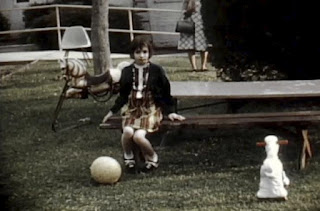Greek Mythology : The Ring of Gyges
(It did take place in Lydia, but it is told by Glaucon in Plato’s Republic.)
Once there was a shepherd in service of the king of Lydia. A great earthquake shook the land, and made a chasm in the ground. While the shepherd was tending to his flock, he noticed this chasm and was amazed.
Intrigued, he entered inside and found many marvels, amongst them a hollow, bronze horse. Inside this horse was the dead body of a man, or what seemed to him to be something larger than a man. He was looking inside a tomb, the tomb of a body that wore no cloak, nor clothes, nor anything but a single golden ring.
He took the ring and left.
Some days later, when the shepherds were having their monthly gathering to report to the king about their flocks, it happened that he was wearing the ring. As he was sitting and listening, he started fiddling with the ring on his finger. He turned the collet inward.
Suddenly, strange things started happening. The other shepherds were talking to each other as if he wasn’t there. It seemed that they thought he had - disappeared. Turn the collet outward, he appears again, turn the collet inward, he is invisible once more.
The shepherd tried using the ring many times, to test what he could do, and started to enjoy the power of using it. He could do anything he wanted, any of his desires and longings seen as wrong and unjust; for when he was invisible, no one could hold him responsible.
Soon he decided he wanted more.
He devised a plan to be made the messenger for the king, and upon arrival, he seduced the queen, and, using the ring, murdered the king and took over the realm of Lydia.
_____
This myth was used by Glaucon to ask the question: would a just man be just if he could be unjust without consequence? He argues that there would hardly be any man alive who would not be tempted to loot what he likes, lie with anyone he desired, kill those he despised or free those he liked from prison - in essence, to be like a god, all the while seeming to be the noble, just man who is honoured and respected.
Does justice make power useless? Does having power lose for you the utility of justice? Is power liberating if it makes justice obsolete? Is justice simply a social construct that people follow out of necessity rather than willingly? Is it better to be seen as just and secretly carry out all your desires, or be thought the worst of, but be just in truth? What is the point of justice?
A very thought-provoking tale.
P.S. Yes, I know, the invisible ring of power found in a cave sounds suspiciously familiar, but there’s no evidence that this story inspired Tolkien. I doubt it. They even did a check in all his letters for the words ‘Gyges’ and ‘Plato’ and found nothing.
Anyway, magic rings are dotted all across literature, from Norse mythology (in the Volsunga Saga) to medieval romances (The Knight and the Lion), to Wagner. The One Ring is both very, very different and strikingly similar to many of them.
- Get link
- X
- Other Apps



Comments
Post a Comment